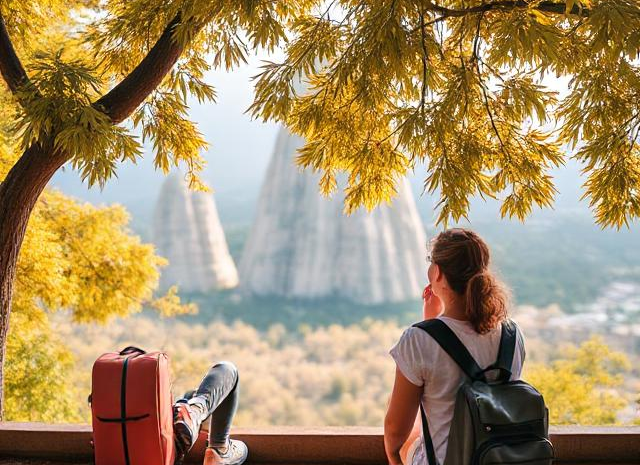
Essential Travel Safety Tips For Solo Travelers
Traveling solo can be an incredibly rewarding experience, but it also comes with its own set of risks. Here are some essential travel safety tips for solo travelers to help you stay safe and enjoy your journey to the fullest:
1. Research Your Destination
- Understand the local culture and customs to avoid misunderstandings.
- Check safety advisories from your government and local resources.
- Know about local crime rates, transportation systems, and areas to avoid.
2. Keep Your Documents Safe
- Make copies of important documents (passport, IDs, travel insurance, and credit cards) and store them separately from the originals.
- Use a money belt or hidden pouch for important documents, especially in crowded areas.
- Consider storing digital copies of your passport and other IDs on a secure cloud service.
3. Stay Connected
- Share your travel itinerary and contact details with a trusted friend or family member.
- Stay in touch regularly, especially if you’re going to remote areas where communication might be limited.
- Download messaging apps that work offline or have low-data usage for emergencies.
4. Use Secure Accommodation
- Choose accommodation in safe, well-reviewed areas.
- Avoid giving out too much personal information to hotel staff or others about your plans or when you’ll be out.
- Use the hotel safe for valuables and lock your doors and windows when you’re inside.
5. Trust Your Instincts
- If something doesn’t feel right, leave the area or situation immediately.
- Trust your gut when it comes to interacting with locals or other travelers. If you feel uncomfortable, politely distance yourself.
6. Stay Aware of Your Surroundings
- Keep your belongings secure, especially in busy or touristy areas.
- Avoid distractions like looking at your phone or wearing headphones in unfamiliar or unsafe areas.
- Always be aware of exits, the local layout, and the direction you’re traveling.
7. Blend In
- Dress conservatively or in a way that matches the local style to avoid drawing unwanted attention.
- Avoid openly displaying valuables like expensive jewelry or electronics.
- Don’t announce you’re a tourist – locals are more likely to target you if they can tell you’re unfamiliar with the area.
8. Keep Emergency Numbers Handy
- Have a list of local emergency contacts (police, medical, embassy) saved in your phone and written down on paper.
- Consider downloading a safety app that helps with emergency services or connecting with others in case of need.
9. Use Transportation Wisely
- Choose reputable transport companies, whether it’s a taxi, ride-share, or public transportation.
- If using ride-sharing apps, check the license plate and driver’s details before getting into the car.
- Avoid traveling at night in unfamiliar areas unless absolutely necessary.
10. Limit Alcohol and Drug Consumption
- Drink responsibly and never leave your drink unattended. Be mindful of your alcohol intake to maintain clarity of thought.
- Avoid drugs, especially in foreign countries where penalties can be severe.
11. Be Cautious with Strangers
- Be careful when engaging with people who approach you on the street. While many locals are friendly, some might try to scam or steal from you.
- Don’t accept rides, offers, or invitations that seem too good to be true without careful consideration.
12. Stay Healthy
- Keep your health insurance and travel insurance up to date.
- Be aware of health risks (e.g., vaccines, water contamination, etc.) in your destination.
- Pack any necessary medications and have a plan for refills if you’re staying for an extended period.
13. Learn Basic Local Phrases
- Learn key phrases like “hello,” “thank you,” “help,” and “where is…?” in the local language. This can help you in emergencies and show respect for the local culture.
14. Avoid Overpacking
- Carry only what you need and keep your luggage light. Large bags or bulky backpacks can make you stand out as an easy target for theft.
- Choose practical and safe bags, like anti-theft backpacks with hidden zippers.
15. Know Your Surroundings
- Stay informed about the local area, its geography, and its potential hazards (natural disasters, political instability, etc.).
- If you’re heading into remote areas, make sure someone knows your exact plans and expected return time.

